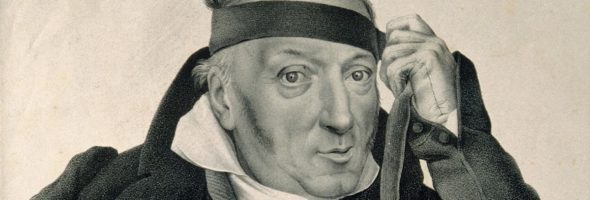How do we learn without reading? Can we?
I’m torn (productively!) by holding simultaneously contradictory perspectives on the question of reading and its place in the course this year; so I think it would be a useful question to start my reflection with this theme.
My immediate reaction is that we certainly can learn without reading; but we should not want to! I was speaking to my good friend who completed a masters last year about the potential for them returning to do a PhD or enter academia; they said they were considering it but ultimately universities destroy true learning. The shared sentiment mostly revolved around the way universities treat things like reading; atomised, decontextualized and rid of all poetic impetus, we are fed snippets of scholarship written by (often clearly bored) academics, cramped into their disciplinary bounds and frameworks where any transgression from style or content is academic deviancy. We’ve discussed at many points the formation and constitution of different communities and forming a community around reading is a more exciting idea than forming transient communities around getting a quickly-forgotten degree for one’s career.
We’ve achieved this in a fragmentary and brief fashion throughout the course, but never fully realised (not that this was our aim, though). Our aims were very vast and perhaps too ambiguous; thinking through the present and future of universities, critiquing structures that constrain us and generating new ones which offer us glimpses at emancipation, might all have been aided through the collective joy and commitment of reading. That we might help revitalise the act of reading and collective comprehension (and joy!) of reading in the academic world as a feature of our investigation of the future of the University is a chance, I feel we sorely missed. Constructing a community based on in-depth reading, affective relationships built upon the debate and digestion of texts and books, and a real appreciation of ideas, concepts, thinkers and thought would do much to overcome the rot and stagnation of the university! To really read collectively would help flatten many of the hierarchies we’ve diagnosed and discussed at length in the university.
However, this highly romanticised perception of what shared reading might do likely betrays lots of the most interesting and emancipatory elements of this course; the pedagogy we’ve been enacting and most focused upon is one that is very stripped back, almost skeletal, of simply inhabiting a room together once a week and speaking (occasionally moving, drawing, performing!). So insisting on more reading and study seems oppositional to those possibilities of different education we’ve begun to explore in this course, and to make any rigid prescription about what would have worked better seems equally unnecessary. We’ve shown that important, productive and pedagogically exciting things can occur without over-reliance on prior guides or ideas.
Against the promise of innovation through digitalisation and technological mastery that the Futures Institute depressingly offers, we’ve approached pedagogy at a more fundamental level by asking the most important questions about education. Unadulterated by usual structures of teaching like being bound to particular texts or authoritative scholarly positions, we’ve been able to more emotively form a community through pure discussion; perhaps this is more universalising and egalitarian than sharing reflections on reading. Having removed most norms of educational progress, goals or expectations, we’ve been able to do briefly do something truly unique (as often frustrating and tiring it has been); we’ve had to confront responsibilities for trying to really build something and not fall back on the usual tools of academic engagement. I’ve learnt many important things without being anywhere near a book or article, many things that couldn’t be textually communicated.
The complex place reading has had for our group reflects the complexity of our project in general; often those things we felt were constraining or limiting we found to actually be essential and important, but that they simply needed to be improved, while those things we thought to be goals to achieved were simply distractions. Luckily, we don’t have to work this all out, but simply pass on what we’ve recored, learnt and experienced as faithfully and usefully as possible to the next course. My final reflection on the question of reading being necessary is thus un-sure confusion on the topic, beyond knowing that we must keep discussing and reading about it.
Implications for next year
Its hard to work out what the implications for next year my reflections might have, so I simply want to express that our failures and flaws can be learnt from, and complex questions like the role of reading can only be addressed through continued experimentation and openness to change. We’ve often failed to hold ourselves accountable to the goals we’ve set, and thus I think it’s imperative we hold ourselves responsible in communicating our experiences to the next group, and implore them to early on address and take into account difficult questions like ‘ how do we learn without reading?’ and to perhaps find some good readings on the topic…
————-
Thank you all so much for shaping this course and sharing this experiment with me. Every time I think on the course my perceptions and memories of it change, depending on what I’ve been thinking about or reading recently, which reveals the diversity of possibilities and avenues we opened. It will be interesting to think of the things which I remember in the years to come, and those parts which fade from memory, but I’ll be sure to remember the excitement and sense of more authentic freedom the course offered me, and the role you all played in it! Attached below is a very odd picture of our friend Joseph Jacotot, to remind us of the revolutionary power of the ignorant! 
Dante




Really enjoyed reading this Dante – maybe you should author some readings for next years course! 😉
Thank you Dante – this reminded me of the joy I used to have in reading and sometimes forget in university. hopefully there is a way to incorporate deep, meaningful readings yet!
As of course you know, I, too, wished we had done more reading. But what might really collective reading look like, I wonder? When we did read, we tended to fall back on discussing what the text was about, so it ended up being like a tutorial where some have read the piece and some haven’t, and we struggle to retrieve something undefined from the text. And we couldn’t seem to agree on what was important for us to read, either. So I wonder, as you do: Are there ways we could have done reading differently?
One thing we didn’t try was reading aloud: listening to someone else read. That requires time, but could be an interesting experiment, and would be very different to our normal practices of solitary reading.
Your post raises lots of important questions about our journey this year–an adventure without a map. Thanks for articulating them so clearly for us all to reflect on going forward.
This is a great reflection Dante, thank you! I think this was very apt for me at the moments as I’ve began to read some books I’ve had to put off for the semester because of course work and, while I felt totally done with academic work by the end of the semester, I am now so energized to read and write because I actually enjoy it! I don’t completely know what this is as many of the things I could have read throughout the semester we interesting but I think autonomy to chose and pursue what interests you is really an important factor. But I share your question: how do we bring that into the classroom for this course? How to we balance autonomy but also collective learning? Maybe rather than focusing on a text, its better to focus on a shared topic and each person brings a text on something they find interesting and gives a summary of that. Something for next year to consider! I think you reflection gives some good questions to be considered. I really valued taking the course with you too!